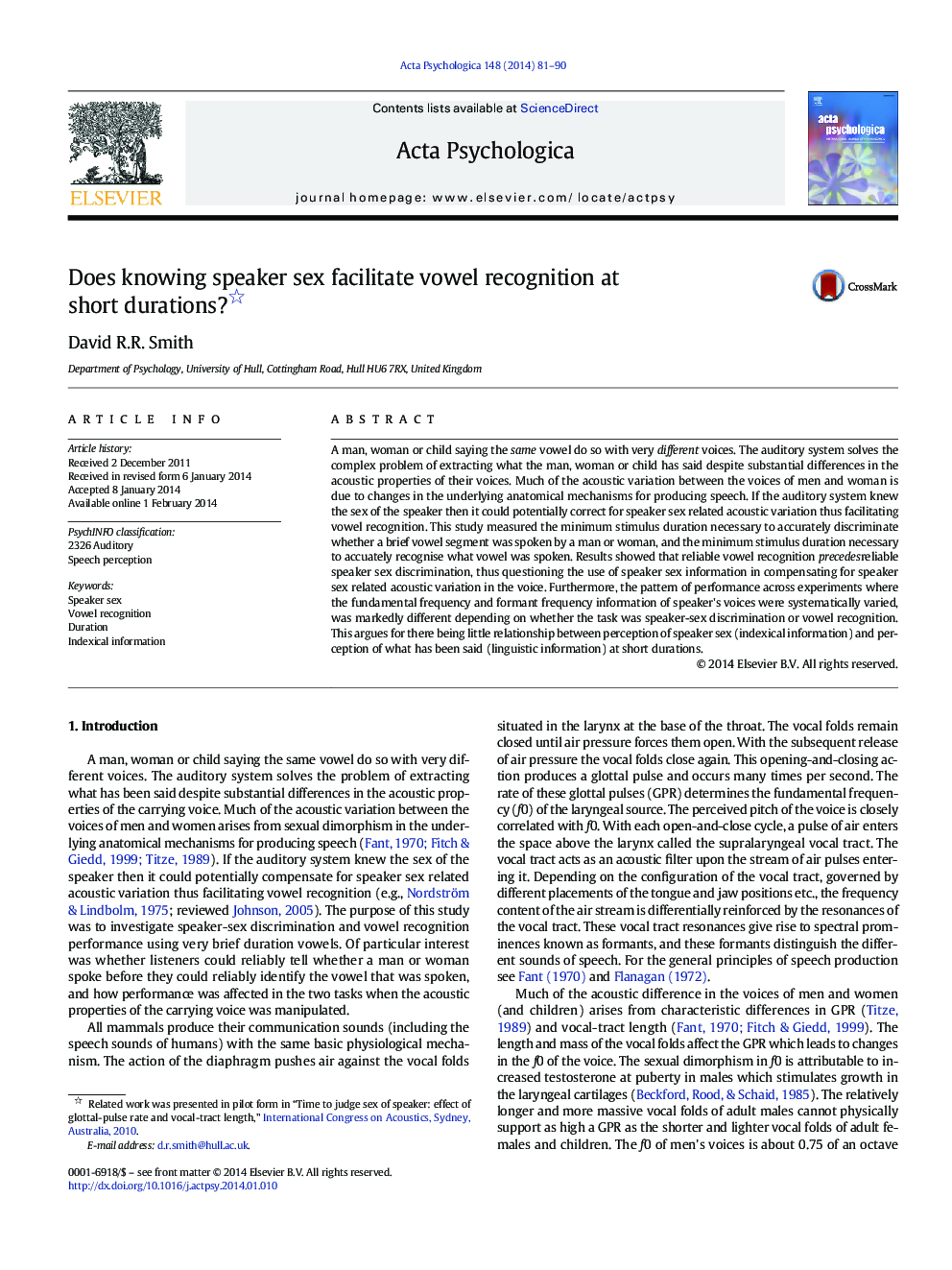| Article ID | Journal | Published Year | Pages | File Type |
|---|---|---|---|---|
| 7277772 | Acta Psychologica | 2014 | 10 Pages |
Abstract
A man, woman or child saying the same vowel do so with very different voices. The auditory system solves the complex problem of extracting what the man, woman or child has said despite substantial differences in the acoustic properties of their voices. Much of the acoustic variation between the voices of men and woman is due to changes in the underlying anatomical mechanisms for producing speech. If the auditory system knew the sex of the speaker then it could potentially correct for speaker sex related acoustic variation thus facilitating vowel recognition. This study measured the minimum stimulus duration necessary to accurately discriminate whether a brief vowel segment was spoken by a man or woman, and the minimum stimulus duration necessary to accuately recognise what vowel was spoken. Results showed that reliable vowel recognition precedesreliable speaker sex discrimination, thus questioning the use of speaker sex information in compensating for speaker sex related acoustic variation in the voice. Furthermore, the pattern of performance across experiments where the fundamental frequency and formant frequency information of speaker's voices were systematically varied, was markedly different depending on whether the task was speaker-sex discrimination or vowel recognition. This argues for there being little relationship between perception of speaker sex (indexical information) and perception of what has been said (linguistic information) at short durations.
Keywords
Related Topics
Life Sciences
Neuroscience
Cognitive Neuroscience
Authors
David R.R. Smith,
